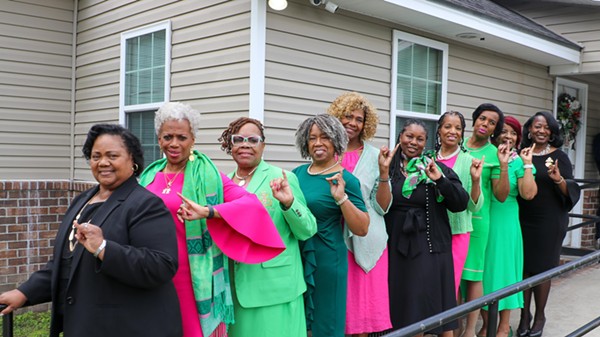FIRST THINGS FIRST: I’ve been told that — contrary to something I wrote in last week’s “Year in Review” and contrary to other reports in local media — the City of Savannah has never purchased liability insurance, and therefore shouldn’t be excoriated for canceling what it never had.
Certainly the most important thing is to be accurate, and I regret any factual errors published here.
But the core question, of course, has never been about the City’s insurance or lack thereof, but about good governance.
(And speaking purely from the perspective of a private citizen, boasting that you’ve never carried insurance and don’t need to is, as a general rule, not the most inspiring or convincing line of argument.)
Insurance is a subject that has come up often in the discussion of the enormous Shanta Green settlement, awarded after an oak tree limb fell on Green’s car, crushing her leg and much of her pelvis and causing severe internal injuries.
Even after the final settlement of that case — to the tune of nearly $10 million, which will likely come directly out of a roughly $30 million general account — discussing insurance is still a viable issue.
It’s viable not only because of the alarming precedent of the Green case, but due to the raft of impending lawsuits facing the City from unrest in the Savannah/Chatham Metropolitan Police Department.
Generally speaking, municipal governments have a large degree of immunity from damage-based lawsuits, the rationale being that no government could financially survive the kind of legal exposure most private companies and citizens have to shoulder every day.
In the interest of economic stability and the greater good, plaintiffs against cities are in effect held to a higher, or at least a different, standard.
In the Green case, the standard apparently was the “nuisance” standard — in other words, her attorney successfully argued that her injuries weren’t damages to be compensated for so much as they were a very, very large and profound inconvenience caused by the City’s neglect in trimming a possibly diseased oak tree.
(Yes, that’s a drastic oversimplification, and no I’m not a lawyer.)
The City maintains that if you do the math, even with the payment of the Green settlement the taxpayers have come out ahead by not paying nearly million-dollar liability insurance premiums year after year.
Assuming that’s true — again, there are conflicting reports — in essence the City has done the same thing anyone does who voluntarily declines insurance: They gambled.
Most of the time, given the City’s immunity from most claims, they, and hence the taxpayers, win the gamble.
But in the Green case, taxpayers lost big. Specifically, about a third of the City’s cash-on-hand reserve. For one case.
In gambling jargon, the City, with its built-in institutional advantages, is the house. And the house usually wins.
Until it doesn’t.
Whether Green is paid in a lump sum or in installments doesn’t really matter. The bottom line is the money that’s going to her is taxpayer money out of our pockets that won’t be used for its intended purpose.
The City maintains, not inaccurately, that a liability insurance premium would also be taxpayer money that doesn’t return a tangible investment.
They maintain — and there’s a case to be made for this — that they displayed prudent stewardship of taxpayer money by betting that the City’s immunity would be enough protection, that purchasing insurance just wasn’t and isn’t justified.
Again: That’s true, except when it isn’t.
We’re in uncharted territory here, which I think the City itself would freely admit. No one really knows the best way forward right now.
The grim truth is that after the Green settlement a third of our cash reserve is already spoken for, and the other shoe hasn’t even dropped yet.
We have yet to begin seeing the ramifications of the extensive personnel allegations against the City due to malfeasance during the tenure of former City Manager Rochelle Small-Toney and former police Chief Willie Lovett.
On the police issue, there would seem to be much more than allegations of a poorly cared-for tree. The City itself, i.e. you, paid for an expensive study to chronicle the disastrous corruption going on at some of the highest levels of the police department.
If a lawyerly way, however crafty, can be found around sovereign immunity in the case of neglecting the upkeep of an old tree, neglect of the upkeep of an entire police department might open similar doors to the City’s general fund.
As we saw with Green and the supposedly “once in a lifetime” verdict against a municipal government, one or more of those other lawsuits may win or settle to the tune of more millions. Or they may not. We just don’t know.
If the Green verdict really is the anomalous, unforeseeable “Black Swan” event the City says it is, then we don’t have much to worry about.
But if they’re wrong... the current path is obviously, and quite literally, unsustainable.
Like I said, insurance is a form of gambling. Either you take the gamble by not having insurance, or you buy insurance and let the insurance company do the gambling.
The question for us as taxpayers is: Do we trust the City to gamble on our behalf?



























